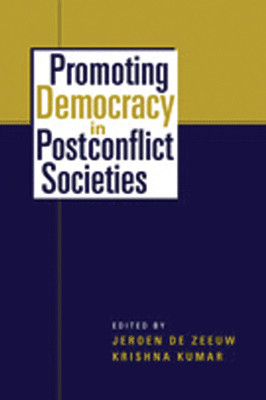Promoting Democracy in Postconflict Societies 01 Edition(English, Hardcover, Jeroen De Zeeuw, Krishna Kumar)
Quick Overview
Product Price Comparison
Few would dispute the importance of donating funds and expertise to conflict-ridden societies but such aid, however well meant, often fails to have the intended effect. This study critically evaluates international democratization assistance in postconflict societies to discern what has worked, what has not, and how aid programs can be designed to have a more positive impact. The authors offer a unique recipient perspective as they explore three dimensions of democracy promotion: elections, free media, and human rights. Drawing on the experiences of Afghanistan, Cambodia, El Salvador, Ethiopia, Guatemala, Mozambique, Rwanda, Sierra Leone, and Uganda, they suggest concrete ways in which the international community can better foster democratization in the wake of conflict. Table of Contents Jeroen de Zeeuw is senior research associate in the Conflict Research Unit at the Clingendael Institute of International Relations in the Netherlands. Krishna Kumar is senior social scientist with the United States Agency for International Development. Table of Contents Democracy Assistance to Post conflict Societies Part 1 Elections and Political Parties International Support to "No-Party" Democracy in Uganda Electoral Assistance and Democratic Transition in Ethiopia Fostering Multi party Politics in Mozambique Part 2 Human Rights Strengthening Human Rights in Guatemala Human Rights Challenges in Post conflict Cambodia Human Rights Assistance to Sierra Leone Transitional Justice in Sierra Leone Part 3 Media Media Assistance to Post genocide Rwanda Promoting Independent Media in El Salvador Building a Community Radio Network in Afghanistan Part 4 Conclusion Findings and Recommendations


